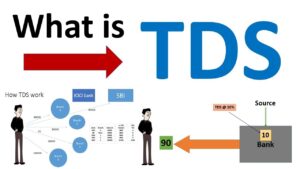![]()

TDS Return compliance
Compliance with TDS (Tax Deducted at Source) return filing is crucial for businesses or individuals who have deducted TDS and are required to report and remit the deducted amounts to the tax authorities. The specific compliance requirements may vary depending on the country and its tax laws. Here are some common aspects of TDS return compliance:
Identification of TDS Deductible Transactions: Businesses or individuals need to identify the transactions where TDS is required to be deducted. This involves understanding the applicable TDS rates, thresholds and the nature of payments on which TDS is applicable.
TDS Return Forms:
Depending on the country, there may be specific TDS return forms prescribed by the tax authorities. Compliance involves using the appropriate form and filling it out accurately with the required details.
TDS Return Filing Frequency:
TDS returns typically require to file periodically. The frequency can vary depending on the country and the category of the taxpayer (e.g., monthly, quarterly, or annually). Compliance involves filing the TDS returns within the prescribed due dates.
For more information to visit: https://www.incometax.gov.in
TDS Return Preparation:
Compliance requires preparing the TDS return accurately, including details such as TAN (Tax Deduction and Collection Account Number), PAN (Permanent Account Number) of deductees, TDS amounts deducted, challan details, and other relevant information as per the prescribed format.
Verification and Validation:
Before filing the TDS return, it is important to review and validate the information provided in the return. Compliance involves ensuring the accuracy of the data, proper calculation of TDS amounts, and cross-verification with supporting documents and records.
TDS Payment and Challan Details:
Compliance with TDS return filing requires providing accurate information about the TDS amounts deposited to the government. This includes mentioning the challan details, such as BSR (Bank State Branch) code, challan serial number, and date of deposit.
TDS Certificates Issuance:
Compliance involves issuing TDS certificates, such as Form 16 or Form 16A, to the deductees within the prescribed timelines. These certificates provide details of the TDS deducted and are essential for the deductees’ tax filing and claiming TDS credits.
Filing Corrections and Amendments:
If any errors or omissions are identified in the filed TDS returns, compliance may require filing corrections or amendments within the specified timelines to rectify the discrepancies.
Compliance with Penalties and Consequences:
Non-compliance with TDS return filing, late filing, or incorrect filing may attract penalties, interest charges, or other consequences as per the tax laws. Compliance involves adhering to the prescribed timelines and ensuring accuracy in the TDS Return compliance filing process.
It’s important to note that the above points are general guidelines, and the specific compliance requirements for TDS return filing can vary among countries. So, It is advisable to refer to the specific tax laws and regulations of your country, consult with a tax professional, or refer to the official tax department website to understand the detailed compliance requirements for TDS return filing in your jurisdiction.

For further details access our website: https://vibrantfinserv.com